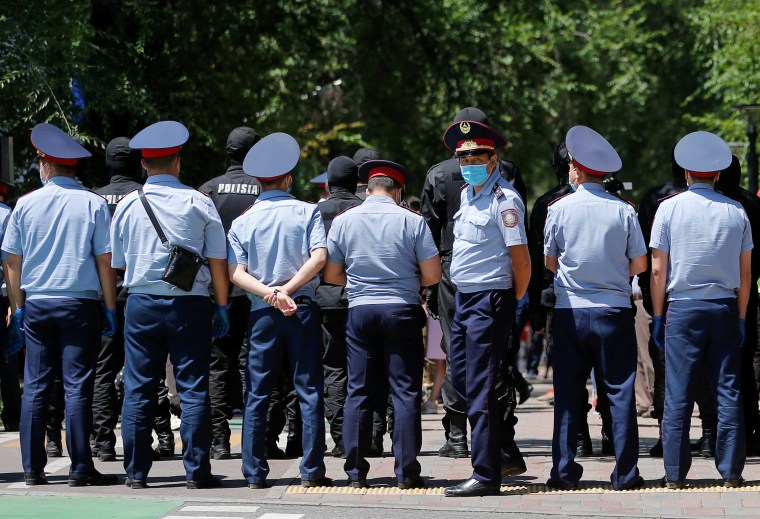New York, July 8, 2020 — Kazakhstan authorities should deepen their reforms on laws affecting the press and ensure that journalists are never jailed for their work, the Committee to Protect Journalists said today.
On June 27, President Kassym-Jomart Tokayev signed into law amendments to the country’s criminal and administrative codes that decriminalized defamation, according to media reports and the text of the amendments, published on the parliament’s website.
If found guilty of defamation under the new administrative code, defendants can face fines and up to 30 days in administrative detention, according to the legislation. Under the previous criminal code, defamation was a criminal offense punishable by larger fines and up to three years in jail.
The reforms did not decriminalize “insult,” a charge that has recently been used against journalists. In September 2019, a court sentenced independent journalist Amangeldy Batyrbekov to two years and three months in jail on insult charges, as CPJ documented at the time. Batyrbekov was released on appeal in January, according to media reports.
“While Kazakhstan’s government is finally undertaking much-needed reforms to its defamation laws, the country should go further and ensure that journalists never spend a night in jail for their work,” said CPJ Europe and Central Asia Program Coordinator Gulnoza Said. “If Kazakhstan truly wants to bring its legislation into line with international norms, it should deepen these reforms and also scrap criminal insult from its books.”
If convicted under the new administrative code, defendants be fined up to 650 minimum monthly salaries, currently equal to 1.8 million tenge (US$4,380), and be held in administrative detention for up to 25 days if the offense was “made publicly, in mass media, or through the means of telecommunication.”
If the offense is considered to involve government corruption or a felony, defendants can face a fine of up to 750 minimum monthly salaries, equal to 2 million tenge (US$4,880), and up to 30 days in administrative detention.
The new administrative code empowers state prosecutors to determine which type of defamation charges to file against a defendant in response to a civil complaint.
Under the previous criminal code, journalists could face fines of up to 2,000 minimal monthly salaries.
In June, when the amendments passed Kazakhstan’s senate, legislator Andrey Lukin was quoted as saying the move would “bring Kazakhstan’s criminal and administrative legislation more in line with international law.”
